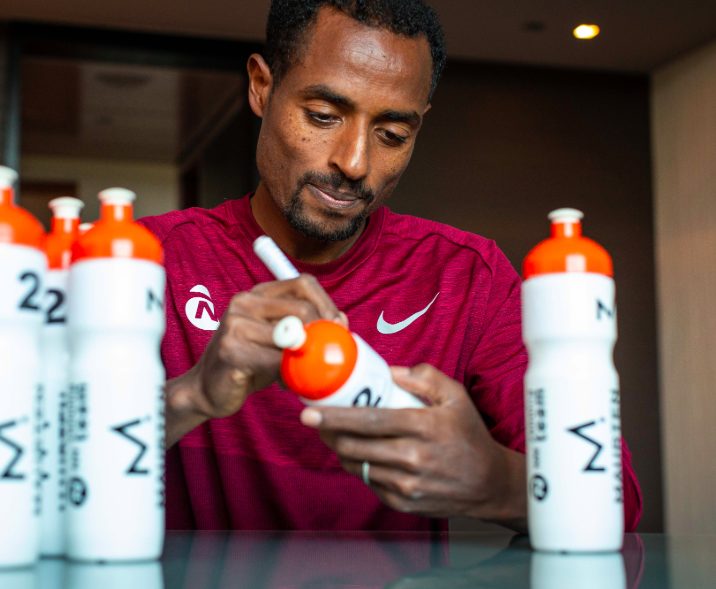Does Maurten really work?
Elites swear by it, but so far the data on the race fuel is still lacking

Despite a distinct lack of scientific evidence to support it, Maurten continues to be surrounded with mystique as the official fuelling product of choice for top-flight marathoners like Eliud Kipchoge, Kenenisa Bekele and Geoffrey Kamworor (who will without a doubt be using it on the course at Sunday’s TCS New York City Marathon).
"Eliud Kipchoge can’t be wrong, can he? On the other hand, we’re all human and susceptible to the power of suggestion."
latest from @sweatscience, on the rise of Maurten and some new research on the company's claims:https://t.co/jUDbcRgDDB
— Molly Mirhashem (@mollyshirreen) October 29, 2019
According to sports science journalist Alex Hutchinson, for two years the company has been promising that independent research is about to substantiate its claims to unparalleled nutrient absorption without the GI symptoms typically triggered by other products, but this research has so far failed to materialize.
RELATED: The Maurten mystique debunked?
Running a marathon in two hours and change requires an athlete like Kipchoge to take in around 100 grams of carbohydrate per hour, but the diversion of bloodflow from the GI tract to the legs associated with extreme exertion often means the gut cannot absorb the nutrition efficiently, resulting in cramping and the urgent need for a porta-potty. Maurten claims that its use of pectin (the ingredient that makes jams and jellies jell) and sodium alginate combine with the stomach’s natural acid to optimize absorption and minimize GI symptoms. (And the presence or absence of GI symptoms can easily mean the difference between a 2:04 marathon and a 2:11 marathon.)
Find one of Birhanu's or Kenenisa's signed @MaurtenOfficial bottles in Berlin tomorrow, take a picture and tag us and we'll send you a Maurten giftbag! pic.twitter.com/Nr4SRk30HH
— NN Running Team (@NNRunningTeam) September 28, 2019
Last fall we reported on a study of cyclists that found that Maurten did not perform significantly better than a comparable control product or a placebo drink. Hutchinson reports that two new studies have found the same thing–one that appeared in the International Journal of Sport Nutrition and Exercise Metabolism involving nine male runners, in which the control product was identical to the Maurten formulation except for the pectin and sodium alginate (which Maurten claims are the magic ingredients), and another one on cyclists (involving, once again, nine subjects) that appeared in the European Journal of Applied Physiology. Neither study showed any significant advantage to using a product made of pectin and sodium alginate in either performance or symptoms.
RELATED: Low-FODMAP diet may benefit runners who are prone to GI distress
Hutchinson concludes: “Taken together, these studies aren’t encouraging for Maurten fans. Whether it’s cycling or running, steady pace or intervals, low volume or high volume of drinking, there’s no apparent advantage to the hydrogel.” Admittedly, the sample sizes were small, and there are other possibly mitigating factors. Still, Hutchinson says he’s still open to persuasion, if and when some meaningful data come to light. In the meantime, that’s one powerful placebo.


